Englishera ka rin ba, halata? The Hidden Biases Behind the ”Englishera, Halata” Meme
Written by Chris Joy Campa-an, March 16, 2025
Have you come across the memes of the “I’m Englishera, halata” girl going around the internet? Or maybe you’ve shared some of those memes, poking fun at her seemingly amusing behavior?
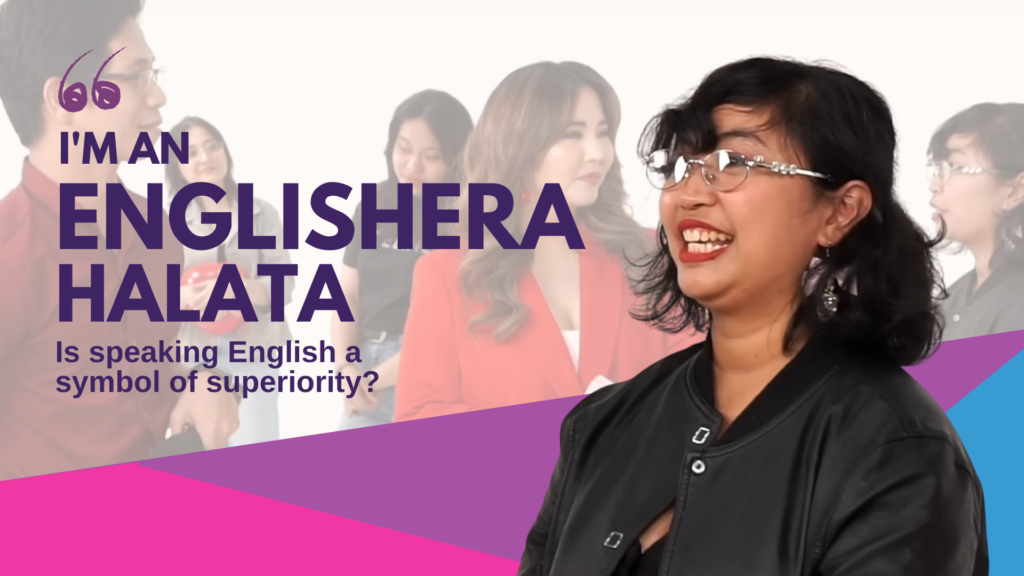
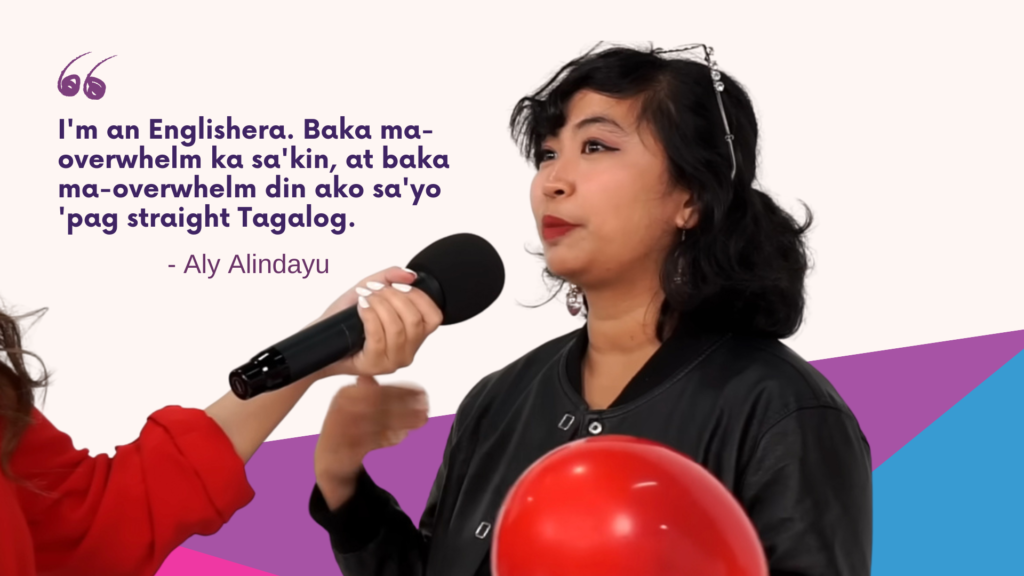
Photo credits: Preview
Five months later, a video resurfaced online of one of the segments of Marian Aunor’s “Pusuan or Laruan?” and ignited a conversation. The show, hosted by Marian Aunor, features a lineup of single ladies who meet eligible bachelors and decide if they believe their potential matches’ intentions are genuine. If not, they pop a balloon – essentially a game of love versus entertainment. Among the five searchers and five searchees featured on the show, a contestant named Aly not only caught the attention of the netizens but also sparked a public discourse online after stating that she might get “overwhelmed” from a searcher’s straight Tagalog and so would the searcher from her straight English.
In the video, she noted that she comes off as strong to the people she dated, and that they usually get nosebleeds, emphasizing her being an “Englishera” and causing her to reject Ian, the bachelor. Ian, however, explained that he is actually fluent in both English and Tagalog, being an instructor for international students himself. Perhaps charmed by this newfound connection, Aly chose to get her balloon back.

Photo credits: Preview
Upon the circulation of this video online, paired with the reactions and comments of the netizens, two questions come to mind. First, why is it that someone who speaks English but is not a native English speaker is viewed, to an extent, superior to those who do not? Second, could the reaction of people be different if the contestant is a different person? Say, someone who is more conventionally attractive?
According to statistics by Forbes (2023), the Philippines ranks with high proficiency as English speakers, receiving 578 points out of 800. By simply observing, it is evident in our everyday lives how customary the language is spoken – from casual conversations at home to academic and professional settings, English is present. We even made a term, “conyo”, to label the distinct way of speaking and switching from English to Tagalog within our own population.
Year 1935, English was designated as the Philippines’ official language, alongside Spanish. 90 years later, we would expect that hearing someone speak fluent English is as normal as eating sinangag and eggs during mornings as Filipinos, very ordinary. However, it is not only Aly and her “English, halata” memes that showcase this perception of Filipinos towards English speakers.
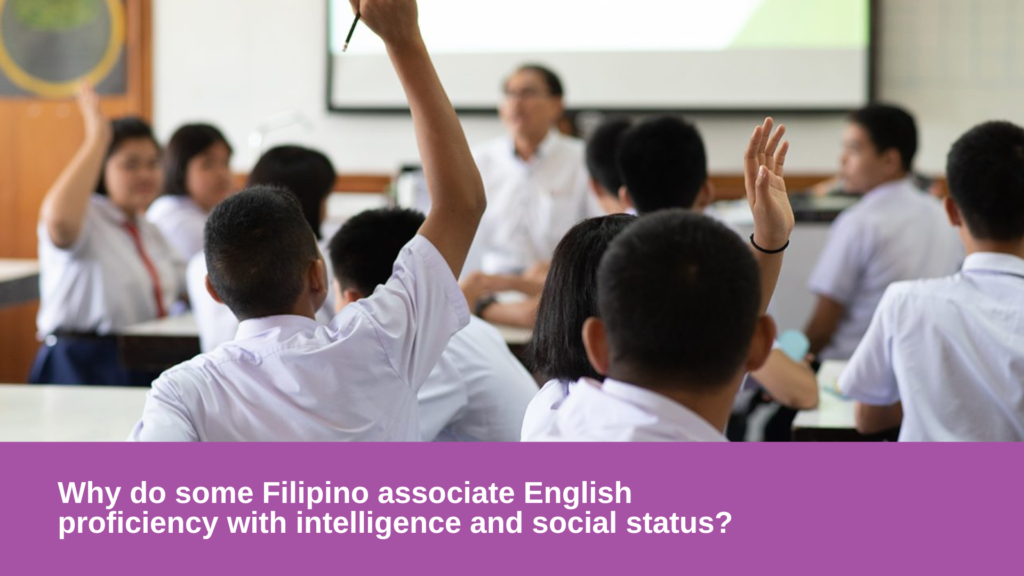
Meriales (2016) talked about being the subject of the three misconceptions about Filipino English speakers – they’re assumed to come from wealthy families, to have attended prestigious schools, and to have lived abroad, traveled often, or not be fully Filipino. And granted, Manalastas (2022), in his study about the social role and position of English in the Philippines, affirmed that English proficiency is linked to socioeconomic status. However, although these misconceptions are not entirely groundless, we cannot say that they’re factual.

Photo credits: Kabayan Remit
But most of all, the idea that fluent Filipino English speakers are superior to those who are not actually stems deeper than just misconceptions and the influence of social media. It is intertwined with the Philippines’ culture and history. As the primary language for education, governance, and commerce during the American colonial era, it was impossible for English not to influence the perception of Filipinos that this foreign language is a symbol of power and privilege.
Even nowadays, job opportunities such as call centers and BPO firms, which are today’s predominant careers for Filipinos, cater only to those who are fluent English speakers. Not only is it more possible to get higher positions, but there are bigger guarantees of higher wages. In the professional field, education, and media, American English is portrayed as accomplished and sophisticated, while English influenced by local dialects is made fun of.
So, if this is the case, why did most netizens react negatively towards her statement? Would that statement pass without much criticism if she was more fit to our idea of how Englishera people looked like?
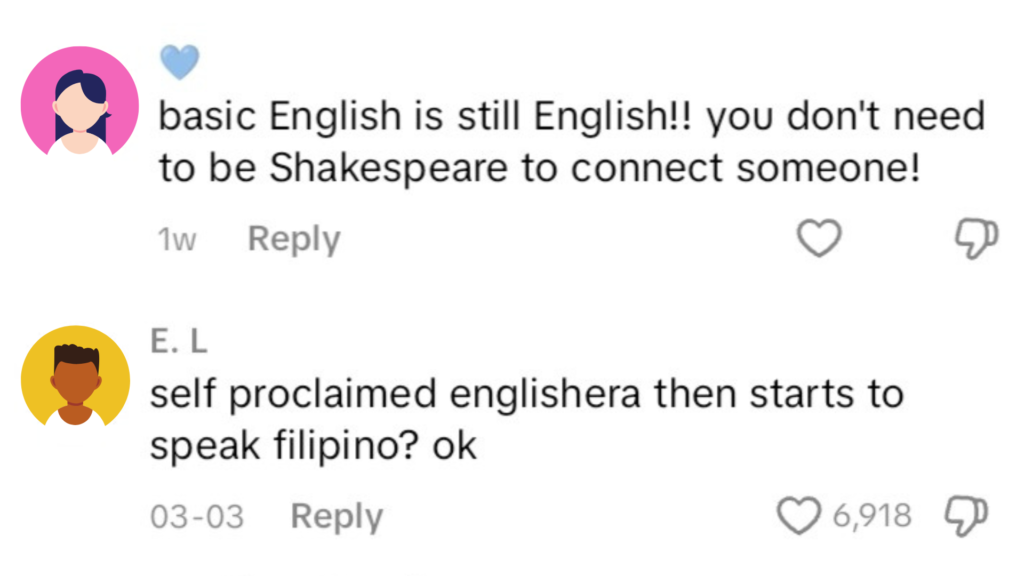
Wang (2009) argued that physical attractiveness influences social perceptions. Even the assessment of an individual’s competencies and talents is affected by his or her appearance. It is necessary to admit to ourselves that it was not only once or twice in our lives that we have looked at someone and immediately formed an impression. This tendency then influences an individual’s personal relationships, self-worth, and overall quality of life.
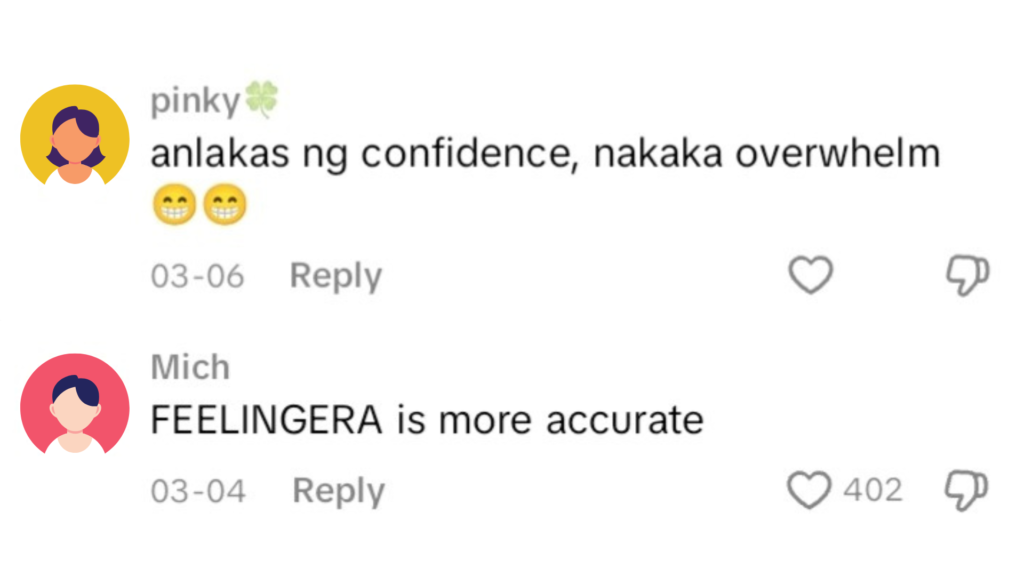
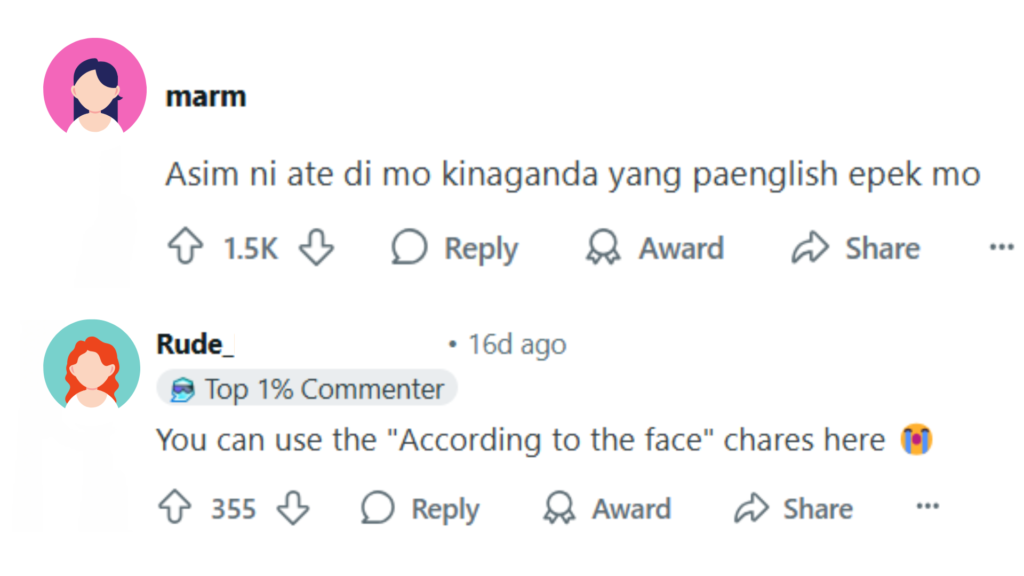
Comments like “Ibagay ang arte sa ganda” show how Filipinos are much tolerant of “kaartehan” if the person’s appearance fits today’s standards. Whether she intended to be considerate for the bachelor and their language incompatibility, or it was for mere “kaartehan” as the majority of people assumed, it is undeniable that things would have turned out differently and people would’ve reacted with less animosity if she was more conventionally attractive. With this comes the thought, is the distaste bordering bullying that she is receiving proportionate to her actions? Or is it driven by prejudice?
Alongside the perception of Filipinos that Englishera/Englishero people are in a higher socioeconomic status, as well as the Filipino cultural roots of holding English with high regards, whether Aly merely expressed her need to establish her sense of self, for entertainment, or for a specific preference in a partner, substantiated or not, prejudice or difference in values, who we know as “Englishera, halata” girl and the response of the people to what she did displayed unsatisfactory behavior for both sides. Can we even put labels on who is right or wrong? Do we just close our eyes and point fingers? Or will we open our minds and understand, accept, and improve?
Have you ever been in the same situation as her? If you were Aly, how would you take the criticisms thrown at you? Do you think what the netizens did is valid?
What Do YOUTH and what do YOU Think?
References:
Ecoloma. (2025, March 11). ‘Englishera’ claim by online dating show contestant draws criticism, sparks memes. POP! https://pop.inquirer.net/375148/englishera-claim-by-online-dating-show-contestant-draws-criticism-sparks-memes
Revelar-Sarza, R. (2023, July 12). Mother tongue in a power play | Inquirer Opinion. INQUIRER.net. https://opinion.inquirer.net/164686/mother-tongue-in-a-power-play#:~:text=Filipinos%20often%20feel%20intimidated%20when,during%20the%20American%20colonial%20era
Meriales, R. (2020, March 22). Common misconceptions of a Filipino English Speaker • American Institute for English Proficiency. American Institute for English Proficiency. https://www.aiepro.com/common-misconceptions-of-a-filipino-english-speaker/
The Good and the Bad: The social role and position of English in the Philippines. (n.d.). https://scholar.google.com/citations?view_op=view_citation&hl=en&user=KXG491IAAAAJ&citation_for_view=KXG491IAAAAJ:d1gkVwhDpl0C
Wang, A. (2009). Physical Attractiveness and its Effects on Social Treatment and Inequality. SSRN Electronic Journal. https://doi.org/10.2139/ssrn.1518099
Reading your blog is like a breath of fresh air. This post was particularly inspiring and left me with a new perspective on the topic. Your ability to approach each subject with an open mind and a positive attitude is truly commendable. Thank you for sharing your positivity and wisdom with the world! — please subscribe to my channel https://www.youtube.com/@jivoice?sub_confirmation=1
Your blog is a true gem in the online world. This post was incredibly well-written and filled with positivity. I love how you always find a way to turn even the most challenging topics into an opportunity for growth and learning. Your optimism is truly inspiring, and I always leave your blog feeling better than when I arrived. Keep up the amazing work! — please subscribe to my channel https://www.youtube.com/@jivoice?sub_confirmation=1
Thank you for always being open and honest with your readers It’s refreshing to see a blogger who is unafraid to be vulnerable and real